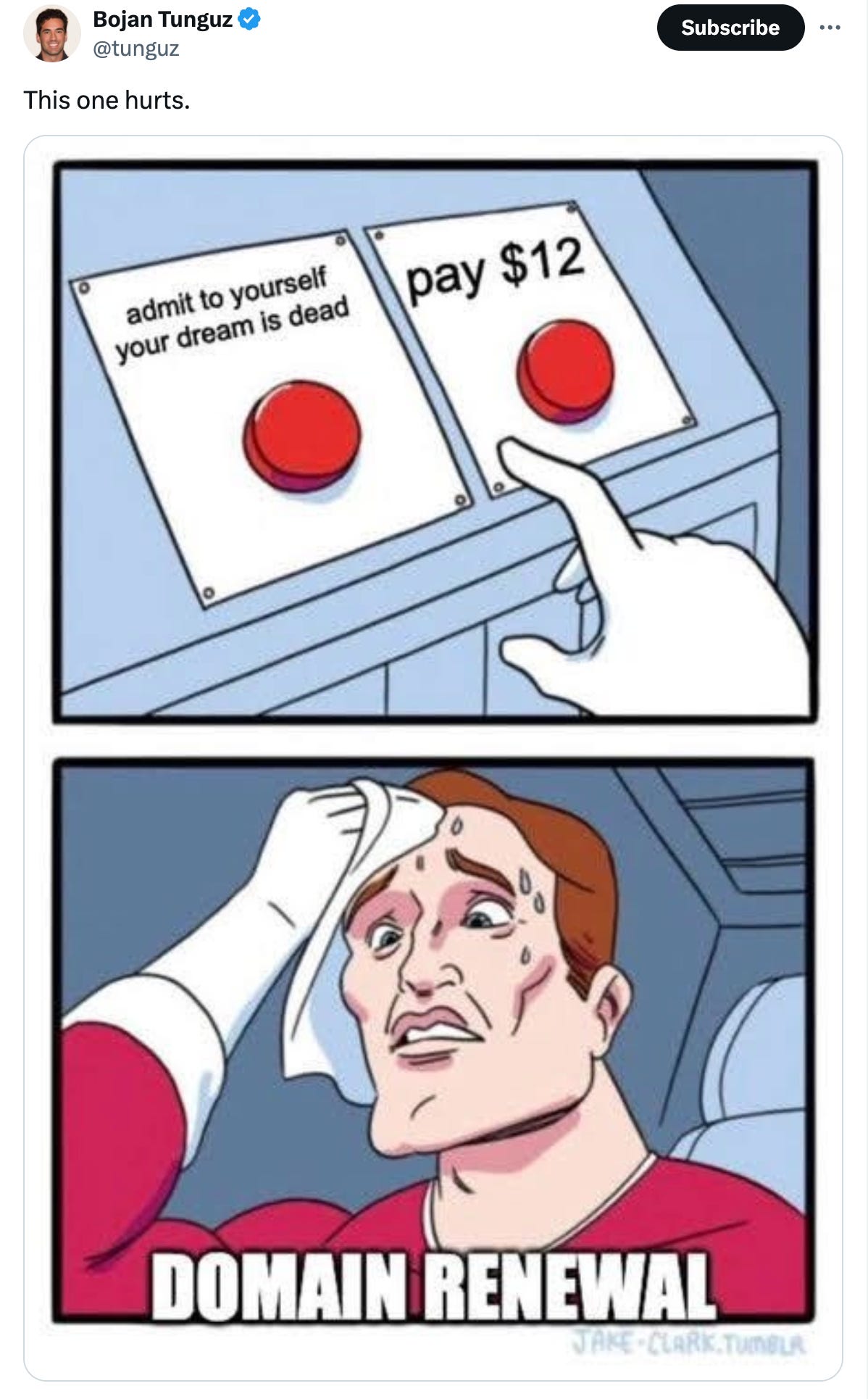Founder Fridays No. 109
Startup Failure Rates -- Pivot Pitfalls -- The Inventor Behind Coffee and Flight
Happy Friday.
Startup Failure Rates
Startup mortality is a stark reality that founders must face. Even top-performing venture capitalist (VC) funds expect a brutal breakdown: 25% of investments yield zero return, another 25% result in losses, 25% barely break even, 15% provide modest returns, and only 10% hit that coveted 10x or greater mark. For founders, this isn't just about survival; it's about understanding the odds and strategizing to be in that elite 10%. Industry veterans such as Fred Wilson consistently observe a similar pattern: one-third of investments perform well, one-third disappoint and one-third fail entirely. These trends have held steady for over 40 years in early-stage VC, underscoring the enduring challenge of building a successful startup. AVC (4 minutes)
Pivot Pitfalls
Pivoting can make or break a startup, but some moves are more perilous than others. B2B to consumer transitions often falter while the reverse can succeed. Adding trendy features like chat or artificial intelligence (AI) to a struggling product rarely solves core issues. Premature platforms and going from paid to free models typically fail to gain traction. Instead, successful pivots often involve doubling down on working segments, aligning with familiar product categories or leveraging unique market insights. For founders considering a pivot, focus on understanding your top users, exploring adjacent markets or dramatically inverting a competitor's key feature. Remember, the goal isn't just change — it's finding product-market fit. Andrew Chen (4 minutes)
The Inventor Behind Coffee and Flight
Alan Adler, an unassuming inventor, created two wildly different yet equally beloved products: the Aerobie Flying Ring and the AeroPress Coffee Maker. The Aerobie, designed for maximum flight distance, holds the world record for farthest thrown object at 406 meters. Meanwhile, the AeroPress revolutionized single-cup coffee brewing, reducing brewing time and bitterness. This story highlights the unexpected connections in the world of invention and the impact of innovative thinking on everyday objects. From flying discs to the perfect cup of joe, Adler's creations demonstrate how diverse interests can lead to groundbreaking inventions. Ironic Sans (5 minutes)
Founder FAQ: Why Is It Important to Use Exact Share Numbers Not Percentages for Equity Offers?
When offering equity to startup employees, using exact share numbers rather than percentages is crucial for clarity and fairness. Percentage-based offers can lead to confusion due to ambiguities in calculation methods (authorized, outstanding or fully diluted shares) and timing. This ambiguity can result in significant discrepancies in value, potentially costing employees hundreds of thousands of dollars. To avoid misunderstandings, founders should provide specific share counts, fair market value and context about the company's total shares. Additionally, consider potential dilution when making offers. By using precise language and exact numbers, startups can ensure transparency, align expectations and prevent future conflicts with valuable team members. This approach benefits both the company and employees by providing a clear understanding of the equity offer's true value. Westaway (4 minutes)
Startup Funding Guides
I’ve put together a series of guides to equip founders to excel at fundraising. These guides break down the deal term by term and give you negotiation tips so that you can speak to investors with confidence.
Convertible Note: Guide / Video
Control Legal Spend
Startups suffer from unpredictable legal bills under the billable hour system. Fees fluctuate month to month without warning. Law firms drag out billable hours, but startups foot the bill. Even basic work can lead to surprisingly high legal bills. This unpredictability cripples financial planning. Budgets rarely match actual spend. With utter uncertainty around legal spend, startups cannot forecast or manage burn rates effectively. The antiquated billable hour system fails them. Our General Counsel flat, monthly fee service gives startups cost certainty. Legal spend becomes predictable with bundled services and no surprise overage bills. By switching from hourly to our flat-fee model, startups finally get confident budgeting, accurate forecasting and predictable legal spend. If you’re sick of getting surprise legal bills and are interested in controlling your legal spend, let’s talk.




I love the comic at the end. So relatable. lol